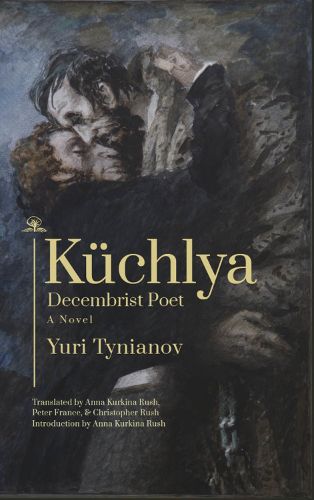Readings Newsletter
Become a Readings Member to make your shopping experience even easier.
Sign in or sign up for free!
You’re not far away from qualifying for FREE standard shipping within Australia
You’ve qualified for FREE standard shipping within Australia
The cart is loading…






The poet Wilhelm Kuchelbecker, Pushkin’s school-friend, suffered twenty years of imprisonment and Siberian exile for his part in the ill-fated Decembrist rising of 1825 against the Russian autocracy. His largely forgotten life and work are vividly recreated in Kuchlya (1925), a pioneering historical novel by the eminent literary scholar and Formalist theorist Yury Tynyanov. Writing at a time when Stalin was tightening his grip on Soviet culture and society, Tynyanov implicitly brings together the disquieting experiences of the 1820s and the 1920s. In a lively, innovative style, his gripping and moving narrative, here translated for the first time, evokes the childhood, youth, beliefs and often absurd adventures of a Quixotic, idealistic protagonist against the richly complex backdrop of post-Napoleonic Russian society.
$9.00 standard shipping within Australia
FREE standard shipping within Australia for orders over $100.00
Express & International shipping calculated at checkout
The poet Wilhelm Kuchelbecker, Pushkin’s school-friend, suffered twenty years of imprisonment and Siberian exile for his part in the ill-fated Decembrist rising of 1825 against the Russian autocracy. His largely forgotten life and work are vividly recreated in Kuchlya (1925), a pioneering historical novel by the eminent literary scholar and Formalist theorist Yury Tynyanov. Writing at a time when Stalin was tightening his grip on Soviet culture and society, Tynyanov implicitly brings together the disquieting experiences of the 1820s and the 1920s. In a lively, innovative style, his gripping and moving narrative, here translated for the first time, evokes the childhood, youth, beliefs and often absurd adventures of a Quixotic, idealistic protagonist against the richly complex backdrop of post-Napoleonic Russian society.